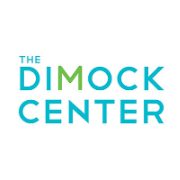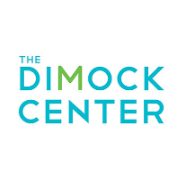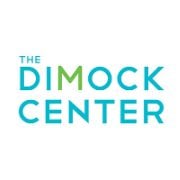First Algonquin Academy
Drug Rehab Center in Dorchester, Massachusetts
- Opioid Addiction
- Dual Diagnosis
- Drug Addiction
- Alcoholism
Algonquin Academy is a comprehensive addiction treatment center that offers individualized treatment plans for a variety of addictions, including alcohol abuse, dual diagnosis, and opioid addiction, and provides a range of care options and therapies for clients, including aftercare support and residential long-term care.
Multiple patients have reported First Algonquin Academy as permanently closed.
Research other rehabs in Dorchester, Massachusetts, or get help finding an open facility.
Our experts will find you an alternative facility.
(888) 674-0062 24/7 Free, Confidential, Expert HotlineAbout First Algonquin Academy in Massachusetts
Algonquin Academy is a comprehensive addiction treatment center located in Dorchester, MA. This facility is renowned for its expertise in helping individuals suffering from a variety of addictions, including alcohol abuse, dual diagnosis, opioid addiction, and more. The staff at Algonquin Academy are well trained and experienced in offering unique, individualized treatment plans that are tailored to meet the needs of each individual client.
Algonquin Academy offers a wide range of care for those dealing with addiction, including aftercare support, drug rehab, and outpatient treatment. Clients have access to a number of different services and therapies, such as couples therapy, family therapy, group therapy, and individual therapy. They also offer residential long term care options for those requiring more intensive care. Algonquin Academy has earned the trust and respect of the local community for its superior addiction treatment services, and its commitment to helping people regain control over their lives.
Genders
Ages
Modality
Additional
Conditions and Issues Treated
Opioid addiction treatment should be done in a medically supervised drug rehab. While taking opioids, users will typically use other substances to enhance the effects of opioids or to reduce the adverse effects of opioid use. Opioid addiction treatment will include detoxification and drug rehab counseling to help both the user and their loved ones learn how to live a successful sober lifestyle.
Treatments such as methadone, buprenorphine, and naltrexone are three medications that can help treat opioid addiction. These drugs work on the brain’s pleasure center and reduce cravings and the effects of illicit opioids such as heroin. These drugs can be either given orally or by injection. Individual drug rehab counseling sessions can be helpful to discuss any questions or concerns with the drug treatment program. This counseling will also help the user set goals for when they finish drug rehab.
Opioid addiction recovery is a long process. Many of the changes to the brain caused by opioid use cannot be undone, but with time and the proper treatment, a person can return to normal function. After detox, treatment will include drug rehab counseling and entering a halfway house or sober living community. Aftercare is critical to long-term recovery, as it helps the user avoid relapsing and entering back into drug rehab.
Levels of Care Offered
This center offers a variety of custom treatment tailored to individual recovery. Currently available are Aftercare Support, Drug Rehab, Outpatient, with additional therapies available as listed below.
“Outpatient treatment is ideal for those who have a lower intensity addiction. It’s also suitable for those with a supportive environment and those on a tight budget.
Outpatient treatment can be considered the lowest intensity level of addiction treatment. It is ideal for early phase addiction or lower intensity addictions. It may involve weekly sessions instead of daily. Peer group support, 12-step programs, and individual counseling may still be used and anti-addiction medication.
Aftercare support is vital to those who have completed a drug or alcohol treatment program. This support comes in individual and family counseling, treatment of psychiatric and other medical conditions, and medications to reduce cravings. It helps recovering addicts adjust to normal day-to-day activities and can last for a year or longer.
The majority of drug and alcohol addicts who receive aftercare treatment do not relapse. It is estimated that without aftercare, the relapse rate will be between 70 to 90 percent for most people. Aftercare is the final stage in addiction recovery, but it will also help maintain sobriety if relapse does occur.
Therapies & Programs
No single treatment works for all addicts; therefore, the goal of treatment and therapy should be to find what works best for each individual. Some people requiring addiction treatment may only need a few weeks of inpatient care. Others will require long-term residential care. Tolerance and withdrawal levels vary from person to person and thus affect the intensity of the treatment needed.
If an individualized approach to treatment and therapy is not offered, addicts may fail to reap benefits from their efforts. Professionals must customize plans according to their patient’s needs, limitations, and strengths. The goal of all forms of addiction treatment should be for addicts to find healthy ways to cope with their addiction and its underlying causes.
Couples therapy for drug addiction is a unique form of therapy that allows family members to work through the emotional issues of their loved one’s addiction together. Family members can support each other while learning how to cope with the addiction and encourage healthy changes.
Accordingly, couples therapy for drug addiction is designed for an addict and their significant other or spouse. The two will work with a therapist to learn how the addiction affects themselves and the relationship and how to break the negative patterns of behavior that may have developed.
Drug addiction can destroy a person’s life, as well as their family and friends. The loss of one’s ability to choose how to live and behave often leads the addict into depression, anger, guilt, and many emotional problems.
The therapies usually include siblings, children, and parents who are involved in their daily lives. These sessions are vital because they address past issues that may have hampered an addict’s or alcoholic’s recovery and provide support at a crucial time!
One of the most critical aspects of family therapy is helping addicts’ loved ones see their situation in a new light. It’s also one of the most challenging things a family can do when a loved one struggles with addiction or alcoholism.
Group therapy is held in a safe, controlled setting where patients can feel comfortable sharing their struggles and gaining perspective through shared conversations. It takes place in a group rather than one on one to prevent feelings of isolation or being unique in their situation while creating an environment for addicts at First Algonquin Academy to develop fellowship, accountability, and support. Group therapy is an important tool in recovery that prevents cravings that prompt a return to active addiction.
Additional Details
Specifics, location, and helpful extra information.
Dorchester, Massachusetts 2121 Phone Number(617) 541-2180 Meta DetailsUpdated November 25, 2023
Staff Verified
First Algonquin Academy Patient Reviews
There are no reviews yet. Be the first one to write one.
Dorchester, Massachusetts Addiction Information
Massachusetts has one of the highest rates of drug abuse in the country. More than half a million Massachusetts residents abuse alcohol while more than 1.5 million use illegal drugs each year. This drug and alcohol usage is the cause of over 8% of all deaths in the state. In 2017, Massachusetts ranked in the top 10 of the states with the highest opioid overdose rates.
Treatment in Nearby Cities
- Southbridge, MA (51.5 mi.)
- Palmer, MA (64.8 mi.)
- East Brookfield, MA (49.8 mi.)
- North Attleboro, MA (27.6 mi.)
- Tewksbury, MA (22.1 mi.)
Centers near First Algonquin Academy
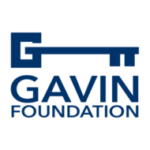
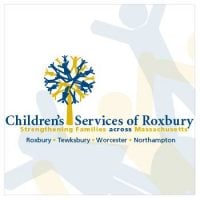

The facility name, logo and brand are the property and registered trademarks of First Algonquin Academy, and are being used for identification and informational purposes only. Use of these names, logos and brands shall not imply endorsement. RehabNow.org is not affiliated with or sponsored by First Algonquin Academy.

